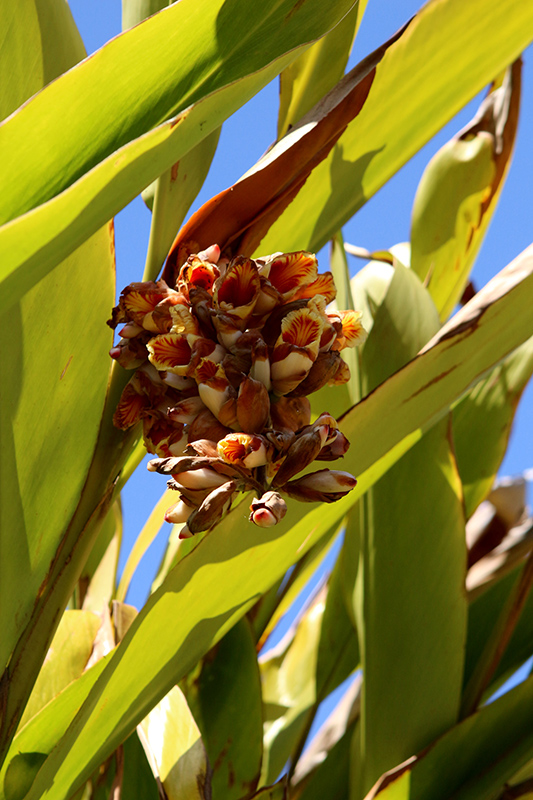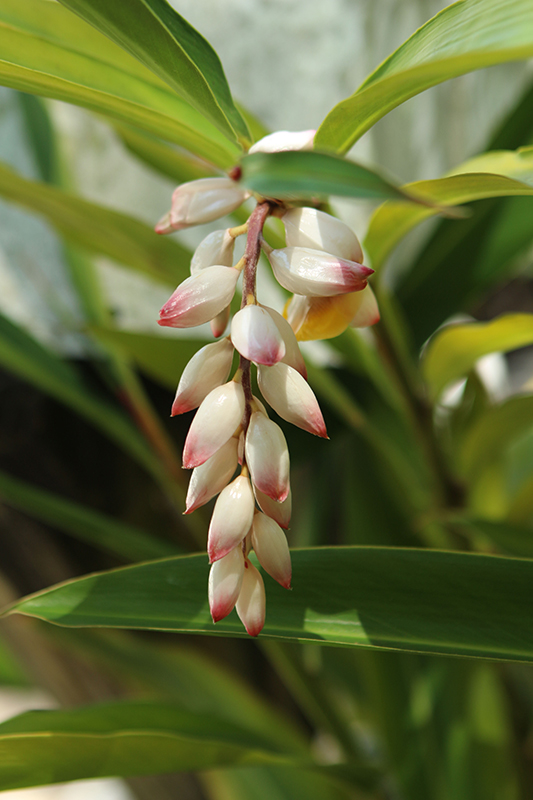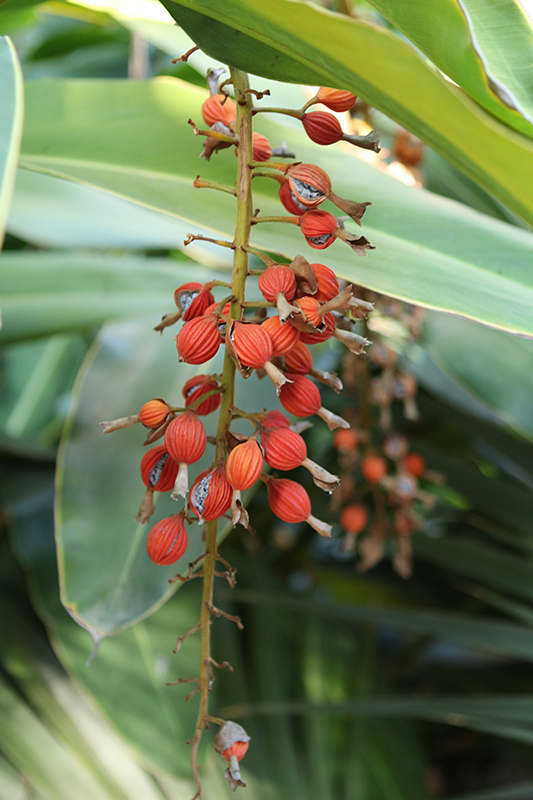Height: 8 feet
Spread: 4 feet
Sunlight:
![]()
![]()
Hardiness Zone: 7b
Description:
Beautiful large blue-green leaves and arching stems create a dramatic tropical effect; will not flower when used as an annual in colder zones; benefits from some mid-day heat protection; keep moist but not wet; great for containers, or along borders
Ornamental Features
Shell Ginger features showy clusters of fragrant pink flowers with white overtones at the ends of the stems from late winter to late fall. Its attractive large pointy leaves remain bluish-green in color throughout the season.
Landscape Attributes
Shell Ginger is an herbaceous perennial with a rigidly upright and towering form. Its medium texture blends into the garden, but can always be balanced by a couple of finer or coarser plants for an effective composition.
This is a relatively low maintenance plant, and usually looks its best without pruning, although it will tolerate pruning. It has no significant negative characteristics.
Shell Ginger is recommended for the following landscape applications;
- Accent
- Mass Planting
- General Garden Use
- Container Planting
Planting & Growing
Shell Ginger will grow to be about 7 feet tall at maturity, with a spread of 4 feet. It grows at a fast rate, and under ideal conditions can be expected to live for approximately 20 years. As an herbaceous perennial, this plant will usually die back to the crown each winter, and will regrow from the base each spring. Be careful not to disturb the crown in late winter when it may not be readily seen!
This plant does best in full sun to partial shade. It does best in average to evenly moist conditions, but will not tolerate standing water. It may require supplemental watering during periods of drought or extended heat. It is not particular as to soil type or pH. It is somewhat tolerant of urban pollution. Consider applying a thick mulch around the root zone in winter to protect it in exposed locations or colder microclimates. This species is not originally from North America.
Shell Ginger is a fine choice for the garden, but it is also a good selection for planting in outdoor pots and containers. With its upright habit of growth, it is best suited for use as a 'thriller' in the 'spiller-thriller-filler' container combination; plant it near the center of the pot, surrounded by smaller plants and those that spill over the edges. It is even sizeable enough that it can be grown alone in a suitable container. Note that when growing plants in outdoor containers and baskets, they may require more frequent waterings than they would in the yard or garden.



